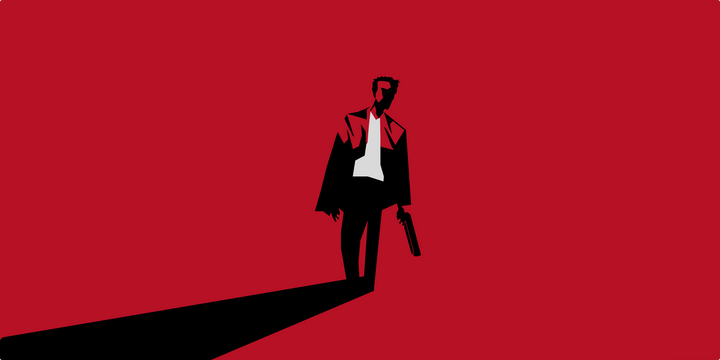Interactive arts, video games or whatever the hell we name this thing, how we categorize it doesn't change the fact that they can be considered art. Is this art, that's not art is an age-old debate and reading legendary critic Roger Ebert's Video Games Can Never Be Art article, made me realize that we are still in the infancy of video games and we still haven't got our big breakthrough. Despite the lucrative nature of the video game industry and that video games are a part of the popular culture, video games remain taboo.
Let's be serious, video games were always associated with kids*, recklessness, violence, killing time, and screaming YouTubers/Streamers. Video games are slowly being accepted as a normal thing. This is why I understand how people may not still see video games as a legitimate media, or as an art form.
Even, Ebert's article has an image of a kid seeming to be frustrated, holding a game controller as its feature image.

Distinct from Traditional Games
I'm not solely going to talk about Roger's critique all the time but him simplifying the vast world of video games and comparing it to chess or other traditional games is not a great way to look at video games. Just because we name it "game" doesn't mean that the dictionary or the old meaning of this term cannot be changed. We, the people, are the authors of the dictionaries and languages constantly evolve. Everything can change and games as a term can have multiple meanings. Wikipedia saying that games are different than work doesn't convert to the current state of video games.
Let's say three artists come together, one is a musician the other is a painting master, other one is a great storyteller. Through their artistry, they create a video game yet in the end this can never be classified as an artwork. Just because chess is not an art, we will see this work as a fancy toy, according to this logic. What a beautiful way to discard everything that all of these artists and devs created to express something that they cared about.
This is the issue I have with the narrative presented in this critique.
The value that the games bring to the player through their storytelling or their meaningful symbolism is overshadowed and discarded by comparing it to basically, a toy. This limited perspective not only diminishes the medium's potential but also inhibits our ability to recognize its true worth. The term game seems to impose a restrictive boundary, preventing us from fully acknowledging the depth and significance of this form of creative expression.
Modern games have progressed far beyond what they were and they will continue to evolve. They offer complex narratives and emotional experiences that rival those found in literature and film. We could take a moment to reflect on our bias and reconsider our stance, asking if it's okay to keep thinking that games are naturally less valuable than other well-known forms of art and entertainment...
Skills, Skulls, Skål!
Another argument supporting the classification of something as artwork pertains to the absence of an explicit skill requirement. I get what they are coming from but I would like to add something to this discussion.
Various viewpoints can be explored in this regard, but it's apparent that not every person looking at Hans Holbein's "The Ambassadors" would easily understand its symbolism. A deeper level of comprehension and proficiency is necessary to grasp the artwork's message.
Skills are not inherent, you expose yourself and learn to read, and appreciate the artwork. I see art literacy as a skill, given that skills are acquired through consistent practice and learning. Some video games and some films require a similar set of literacy to understand the meaning and symbolism as well.

Furthermore, it's important not to generalize all games under a single framework. Games such as Street Fighter and Telltale's The Walking Dead occupy opposing ends of the spectrum in terms of the skills they necessitate. It's worth noting that the concept of skill can be relative, as both games involve button pressing, even though a novice engaging in Street Fighter could unintentionally execute some maneuvers. Additionally, interactivity inherently involves a measure of skill. While the extent of skill required might differ across games, the interactive nature of the medium renders the dismissal of video games based solely on this criterion unreasonable.
While we are talking about skills I wanted to comment on the difficulty aspect. Some games need to be somewhat challenging to maintain their identity, for example, Elden Ring. Difficulty can be viewed as an integral component of the narrative, not just a way to cater to hardcore players.
The fundamental skill that everyone needs is the ability to understand how to use a game controller or a phone screen for interaction. Essentially, there are no other prerequisites for anyone to engage in playing a game. While someone unfamiliar with navigating three-dimensional spaces using gamepads might initially have a different experience from a seasoned player, this skill can be acquired through active participation in the game.
Basically, if we have the viewpoint that other forms of art do not demand active participation or any skills thus video games cannot be art, it will be hard to reconsider our definition of art and fully embrace the novel aspects that video games introduce to the scene.
Pictures to Movies, Movies to Video Games
Not every movie, a painting, or a game, fits the definition of art. However, does the existence of some non-artistic examples mean that we should oversimplify these human-made terms and equate their value without distinction?
Movies are essentially a composition of images and sound. It's easy to find scenes that are pictures, especially in arthouse films. Yet, it's crucial to acknowledge that movies rely on visuals, sound design and music to convey their intended message. Movies distinguish themselves by combining visual and auditory elements to craft something novel and meaningful. Moving on to video games, they push these boundaries even further. By incorporating images, sound, and dynamic camera movements into a three-dimensional interactive space, video games establish a distinct field of creative possibilities that differentiates them from other mediums.
When game developers incorporate movie-like sequences, it's a manifestation of their artistic vision. Critiquing this decision shouldn't revolve around whether they're "trying to be movies." It's more productive to critique the execution.
Games can never be like movies and vice versa. Engaging in debates about whether games and movies are better than each other is unproductive. Instead, we should value them for their unique qualities. Creators deliberately can select one of these mediums to showcase their artistic skills and the stories they want to share. Approaching games, photos, and movies as toolboxes, or fields is more productive, in my opinion.
Remain calm, video games will be art.
Once video games were for kids, once they were a shelter for the outcasted people, once they were social media toys, and one day they will be as normalized as movies. We are in 1923 for video games, we still have 20 years for our Citizen Kane and 45 years for our 2001: Space Odyssey... Remain calm, eventually, video games will be accepted as art.

For the high art society. Yes, video games could take longer to be recognized as art. Sadly, I also believe that people who have authority in the high art world are the ones who decide what art is...
It's Always Sunny in Philadelphia | FX Networks, LLC
And for it to be accessible to the general public will probably take around 25-30 years. Video games as we know them will no doubt breed innovations and ways to experience them. Some video games might be defined in newly created terms, or interactive arts etc. But eventually, I believe that video games are going to be recognized beyond their stereotypes.
I don't think that there is a need to accept video games as an art form. But whether we like it or not it will happen. All I want is for video games to become more accessible and recognized as a part of general, day-to-day media.
See you in 30 years.
Footnotes:
*The association with children probably persists due to the animation-inspired or stylized(cartoonish) design choices, which diverge from realistic models. This aesthetic could inadvertently strengthen the association. In my opinion, this style has the potential to reinforce the bias. Movies and art that lean towards realism are commonly regarded as more mature and esteemed by the general public. But I'm not agreeing with this notion, I'm just saying that this could be one of the factors.





